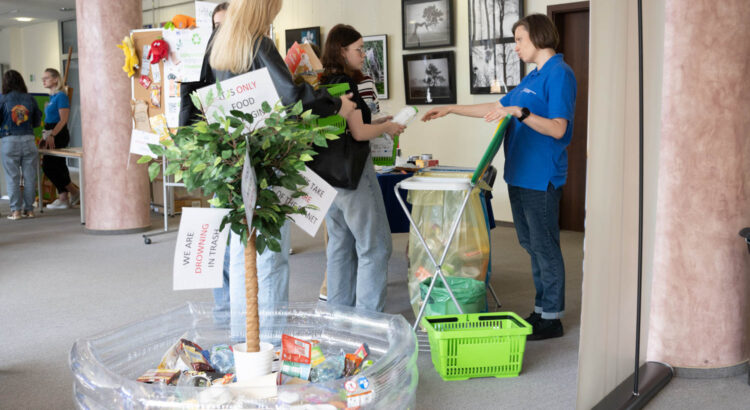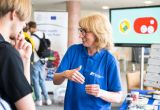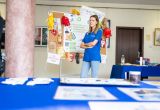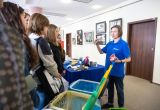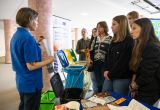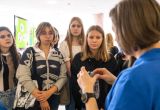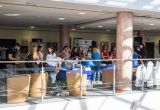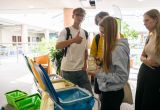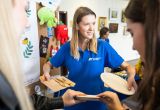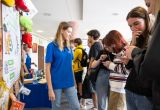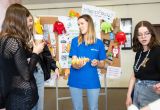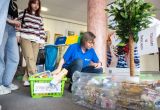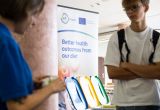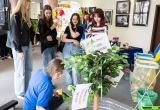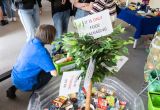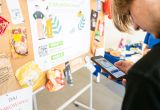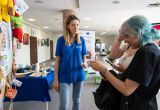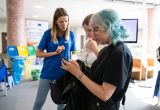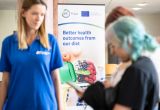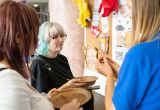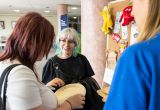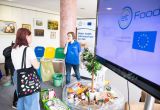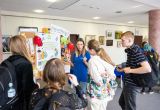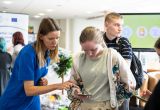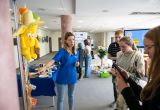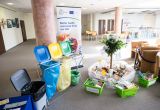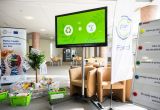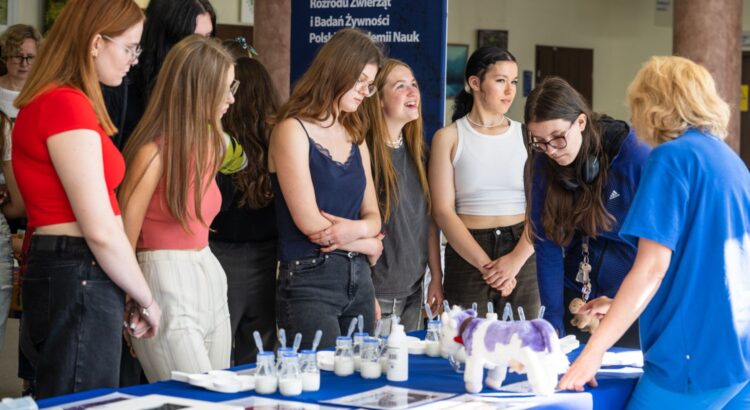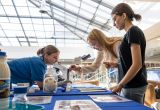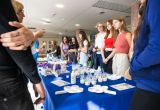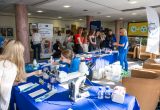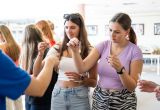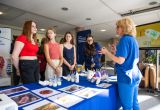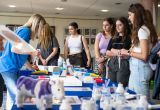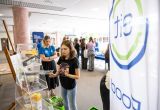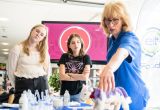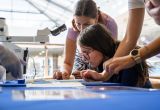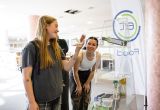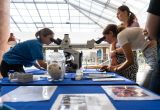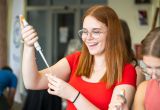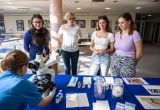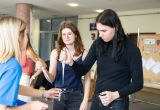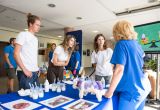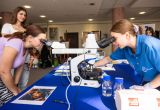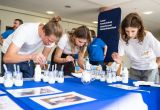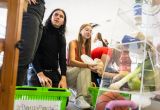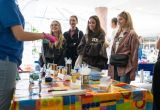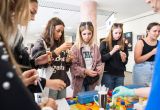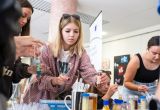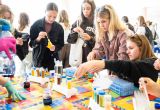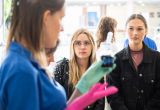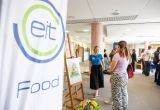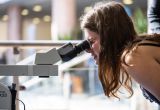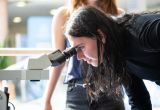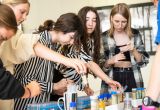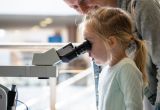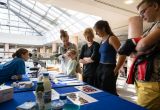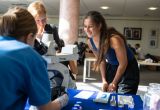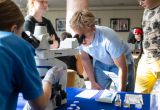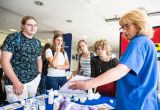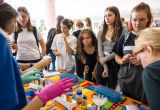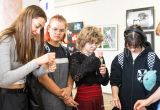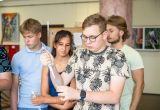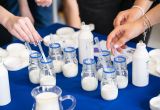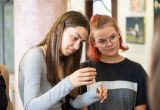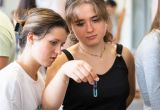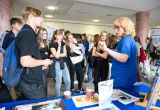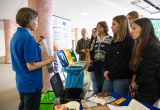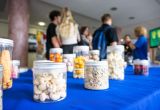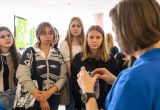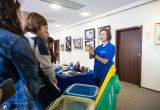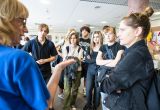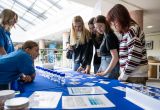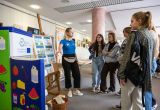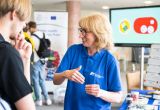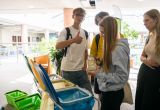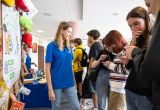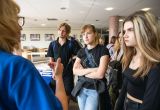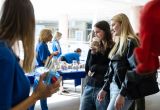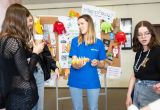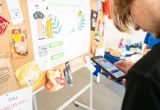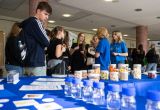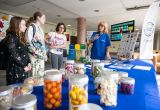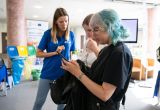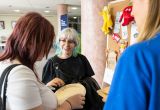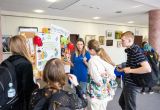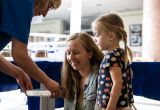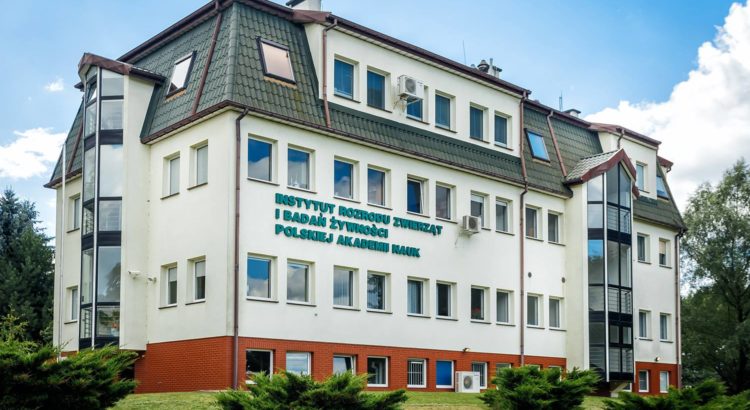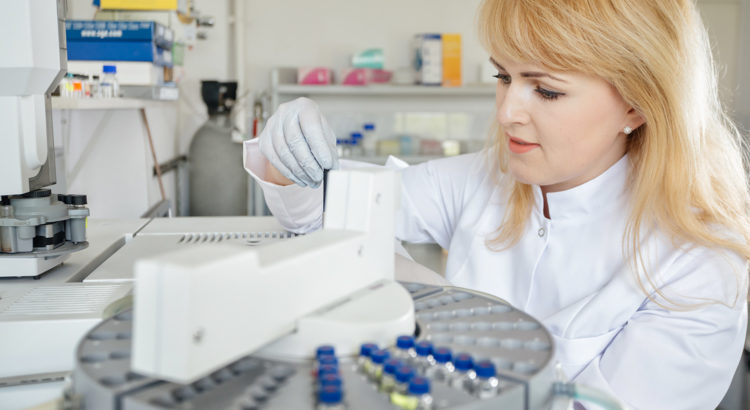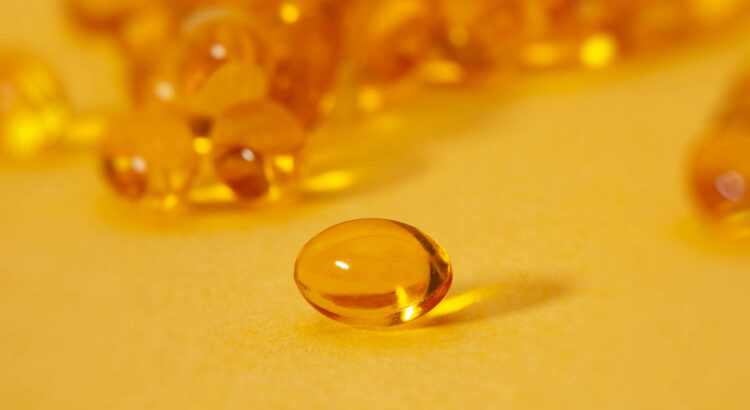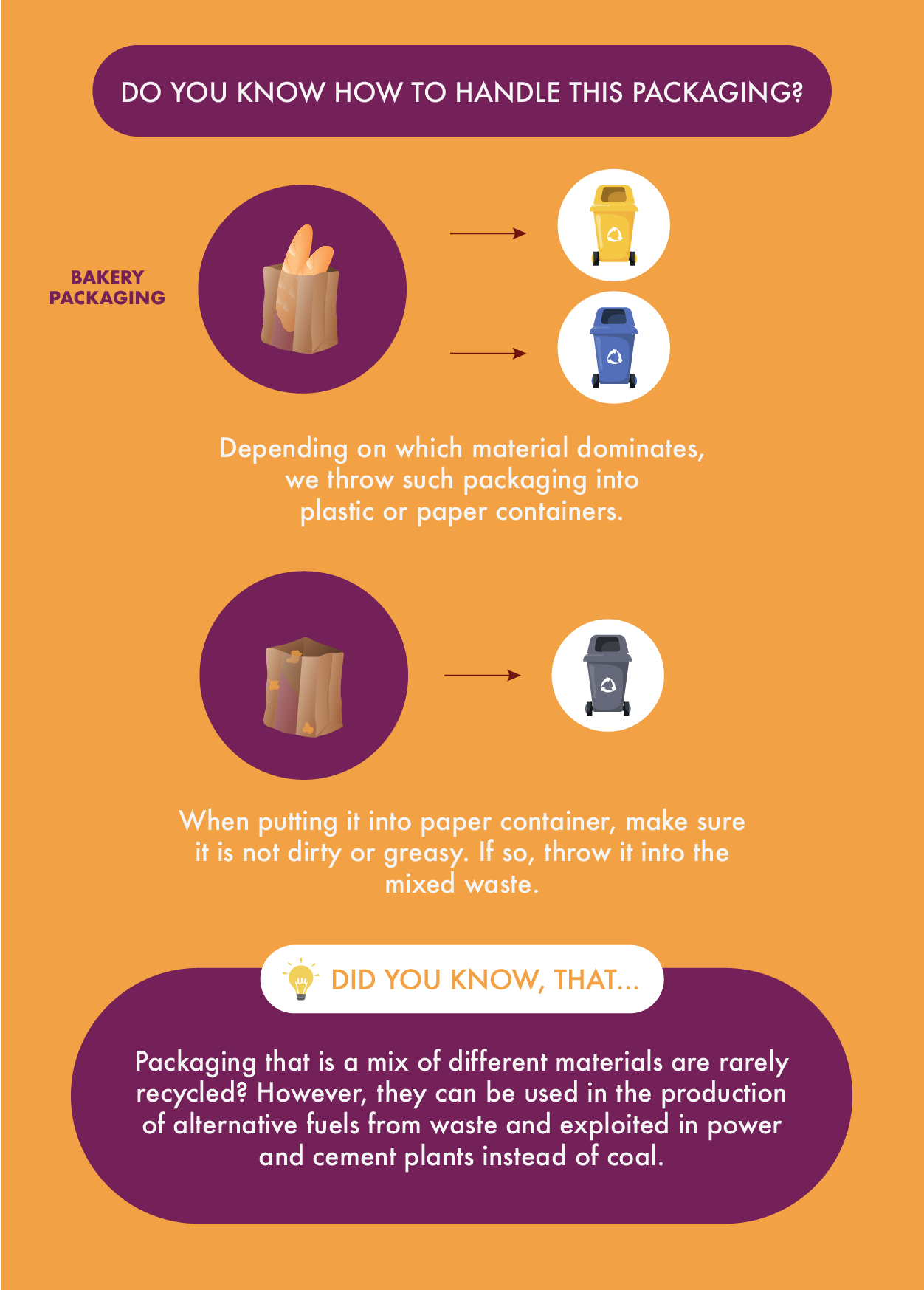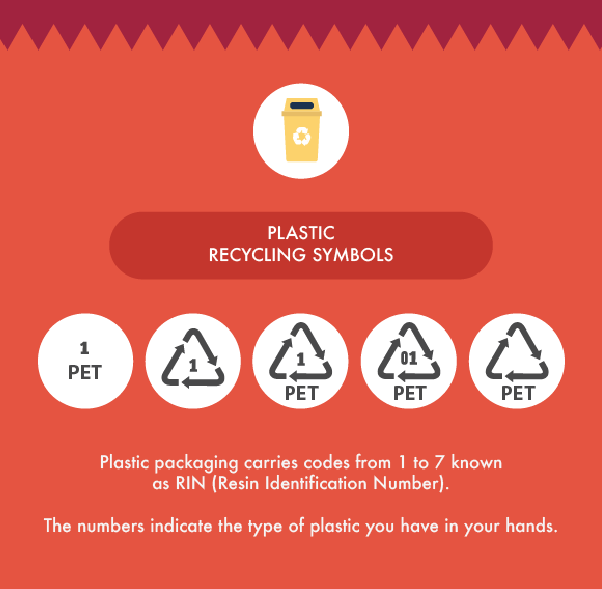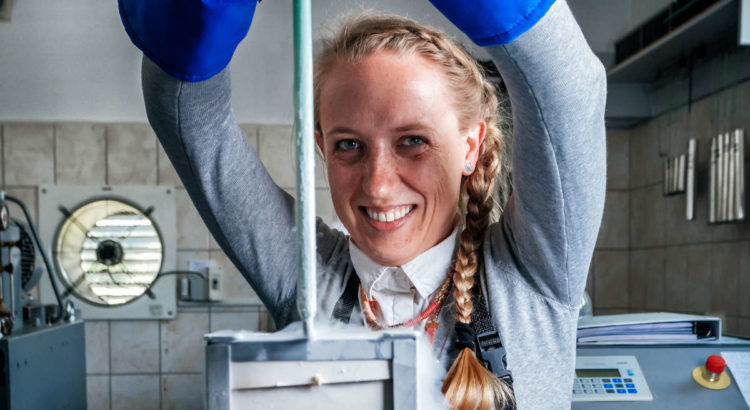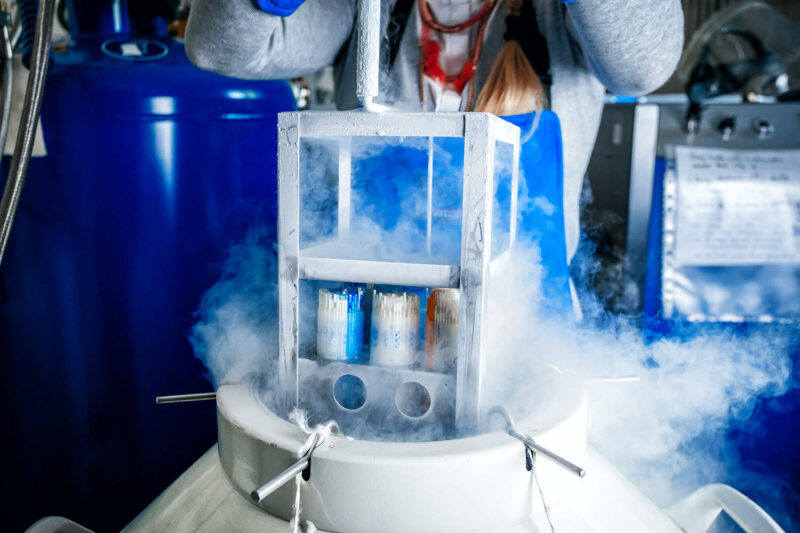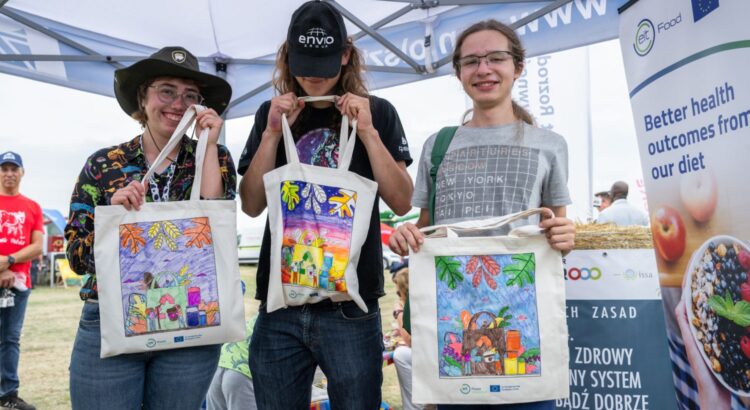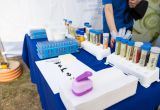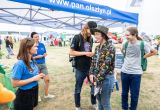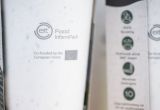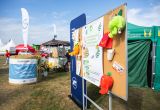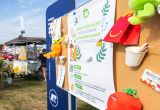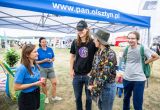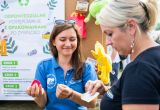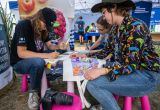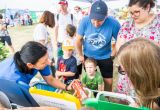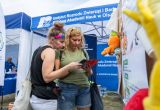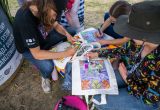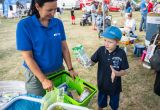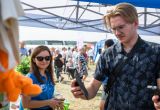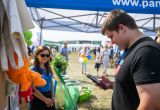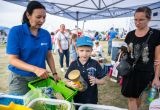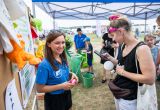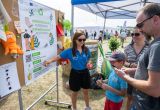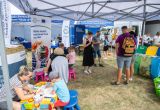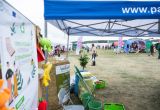The increased popularity of the ketogenic diet is not followed by scientific knowledge on the safety of its use, points out Dr Natalia Drabińska from the Institute of Animal Reproduction and Food Research of the Polish Academy of Sciences in Olsztyn, who studies the effects of the ketogenic diet on metabolism, inflammation, selected nutritional parameters and oxidative stress in overweight and obese women.
The ketogenic diet is a high fat, low carbohydrate diet that involves putting the body into a state of ketosis. – It is quite a demanding diet, but one that gives quick results and allows you to lose unwanted kilograms in a short period of time. This is why it has become so popular in recent years – emphasises Dr Natalia Drabińska from the Department of Chemistry and Biodynamics of Food at the IAR&FR PAS in Olsztyn.
However, this does not mean that the ketogenic diet is scientifically well understood; there is still a lot of information published on the internet about the effects of this diet on the human body that is not supported by scientific research. – Although the available scientific literature indicates that the use of the ketogenic diet may be beneficial in reducing body weight, comprehensive studies guaranteeing the safety of its use are not available – she adds.
Seeking to fill this gap, the researcher, as part of an NCN-funded project, is investigating how the ketogenic diet affects metabolism, inflammation, selected nutritional parameters and oxidative stress in overweight and obese women.
The first correlation studied is the effect of the ketogenic diet on metabolism, i.e. the total biochemical processes in the body that process the energy of nutrients from food.
The next step will be to investigate the effect of the ketogenic diet on inflammation – whether and how it can reduce it.
In the effects of the ketogenic diet on selected nutritional parameters, the researcher will examine the levels of fat-soluble vitamins, namely vitamins A, D, E and K; determine the amino acid profile and the fatty acid profile.
The effect of the ketogenic diet on oxidative stress, on the other hand, will be determined by the level of antioxidant activity – what from the diet increases it and how the body responds to it; the level of enzymes involved in neutralising free radicals; and the level of lipid and nucleic acid peroxidation products. – My previous animal research showed that the ketogenic diet, even in a fairly extreme form, did not induce oxidative stress, and in fact lowered it – says the researcher.
– We have now carried out most of the research and have begun to analyse the results. Thanks to them, we will be able to answer questions asked by many people struggling with obesity and overweight, wondering whether the ketogenic diet is a safe and effective way to lose extra kilograms – emphasises Natalia Drabińska.
The cohort included 80 women (72 completed) – healthy, slightly overweight (with a BMI of 25.5-35), with an average age of 35-40 years; they were volunteers from Olsztyn and the surrounding area. For 8 weeks, women received daily balanced meals, provided by a diet catering service, and attended regular check-ups. – All the ladies are satisfied with the results of this diet, as they have shed a total of 380 kg! – indicated the researcher, who also went on a diet.
THE KETOGENIC DIET – WHAT YOU SHOULD KNOW?
The ketogenic diet involves balancing meals in such way that the main part of the calories comes from fats and the consumption of carbohydrates is maximally limited. Interestingly, the ketogenic diet was originally used to treat patients with drug-resistant epilepsy.
After four to six weeks of adaptation to such a diet, a state of ketosis occurs in the body, i.e. the body 'switches’ so that it derives energy from ketone bodies (i.e. fat accumulated in the tissues) and not – as before – from sugars (glucose).
– Before this happens, however, you need patience and determination, because the ketogenic diet can make you feel worse in the first few weeks. This is because when your body runs out of glucose and is not yet able to use ketone bodies, you will lose strength and may experience flu-like symptoms. This is when it is especially important to remember to drink plenty of water and to keep an eye on electrolyte levels. As a start, I also recommend supplementation with MCT oil – this is an oil containing medium chain acids that go directly to the liver (without passing through the pancreas) and are converted into ketone bodies there, says the researcher.
The scientist reminds us that in following any diet, it is important to proceed with caution and awareness. – In some situations, it is necessary to consult a doctor, as a high-fat diet should not be followed by people with kidney or liver problems, for example. We must remember that it is a diet based mainly on fat, which is metabolised by the liver. Therefore, loading it with a high-fat diet in people who are ill can be dangerous to their health. It is therefore worth doing a liver panel (ALT, AST, GGTP) before starting the diet, as well as checking kidney parameters such as uric acid, the level of which increases especially at the beginning of a ketogenic diet – she points out.
The ketogenic diet is an elimination diet, so it is important to ensure that it is varied and balanced. – The ketogenic diet is not about meat dripping with fat, but, above all, about healthy fat from, for example, eggs, avocados, nuts, olive oil or selected fruit and vegetables,” emphasises Natalia Drabińska.
As the researcher points out, according to current scientific knowledge, there are no contraindications to prolonged/longed use of the ketogenic diet.
Dr Natalia Drabińska’s research is being conducted as part of a project entitled 'KETO-MINOX: Effects of an isocaloric, reducing ketogenic diet on metabolism, inflammation, selected nutritional parameters and oxidative stress in overweight and obese women’, funded by the National Science Centre (NCN). The project will last until 2025.
Read more
